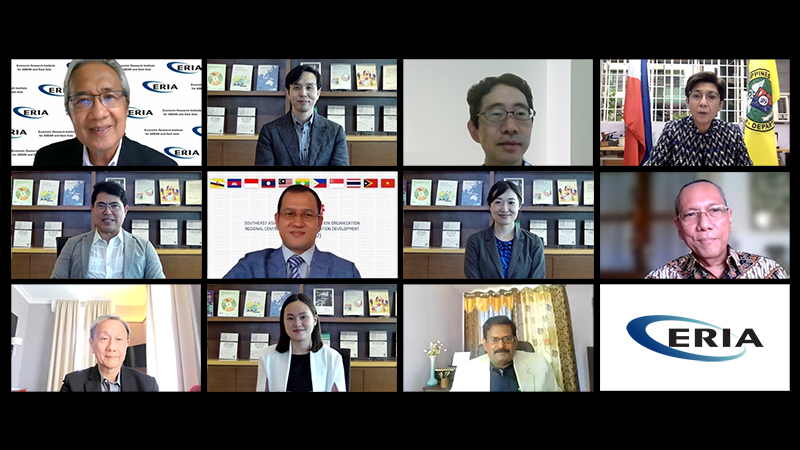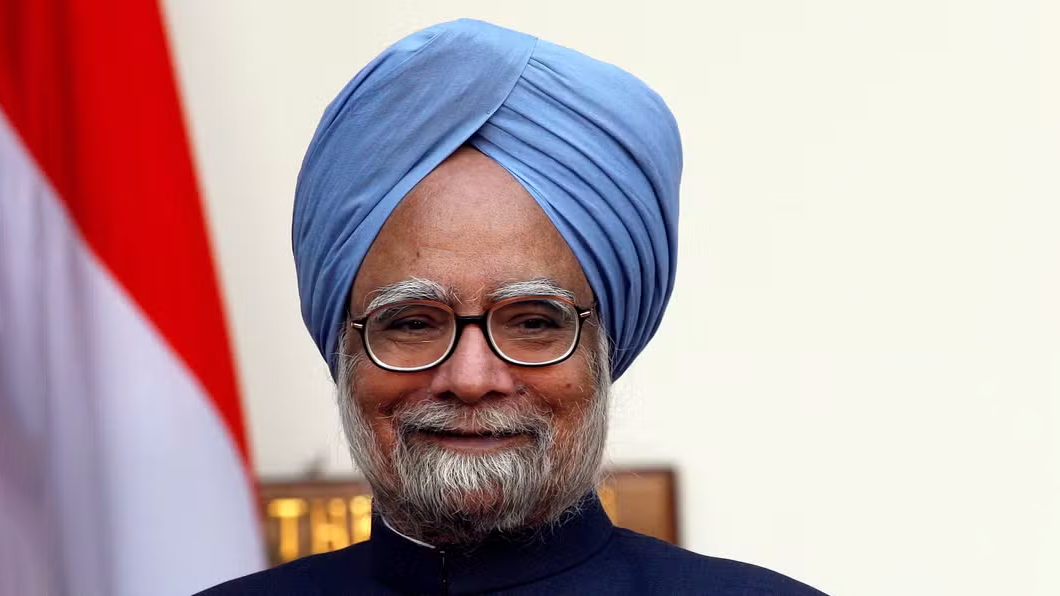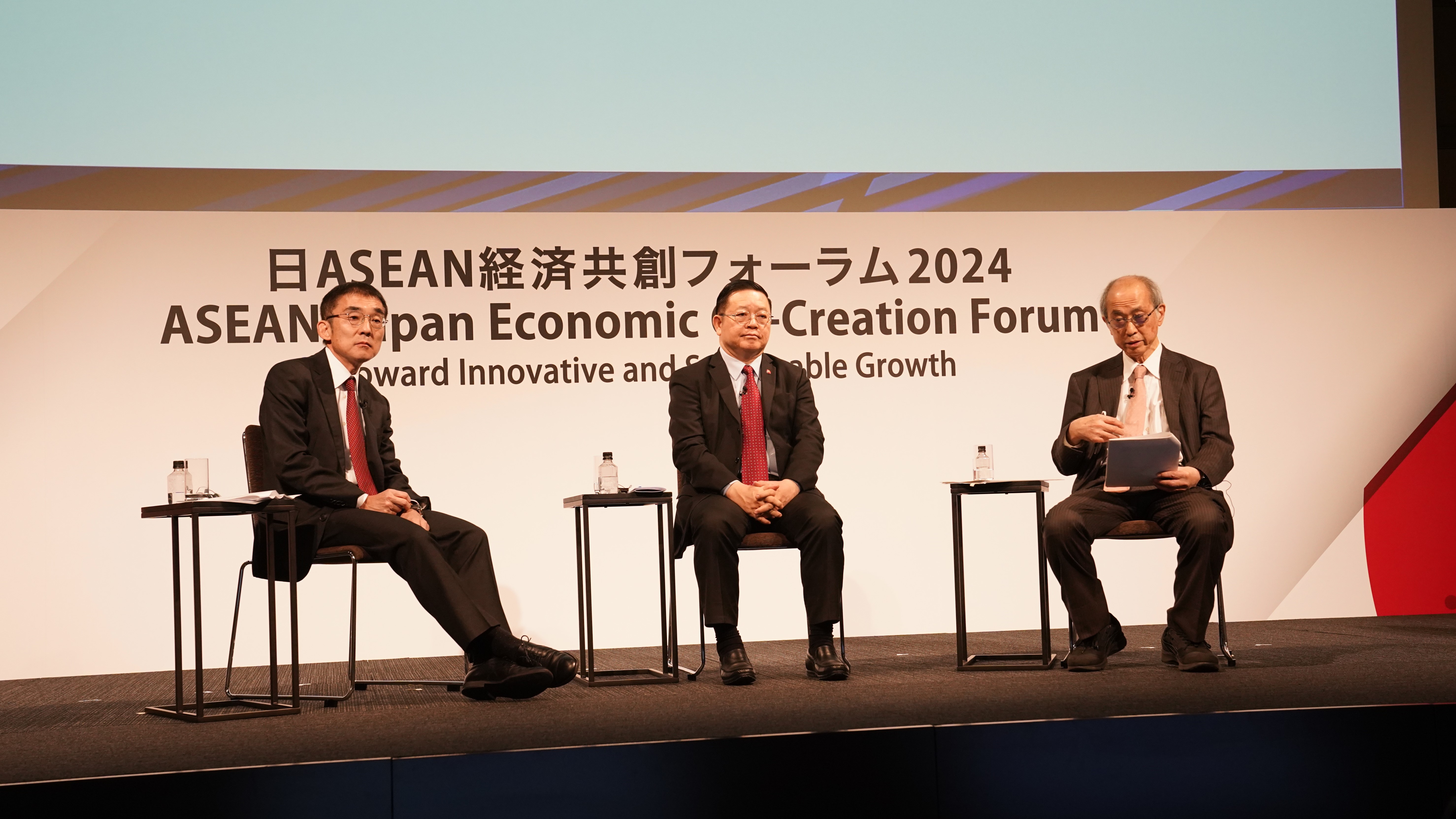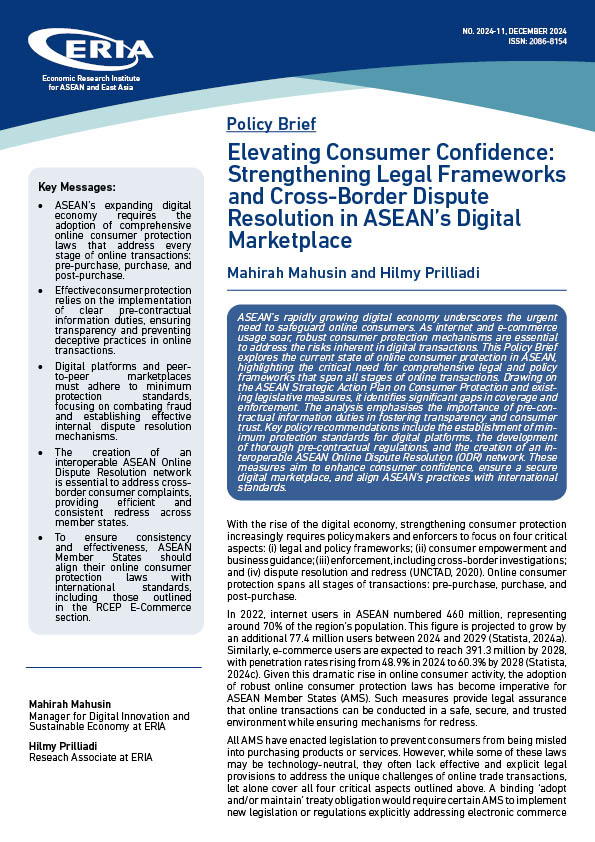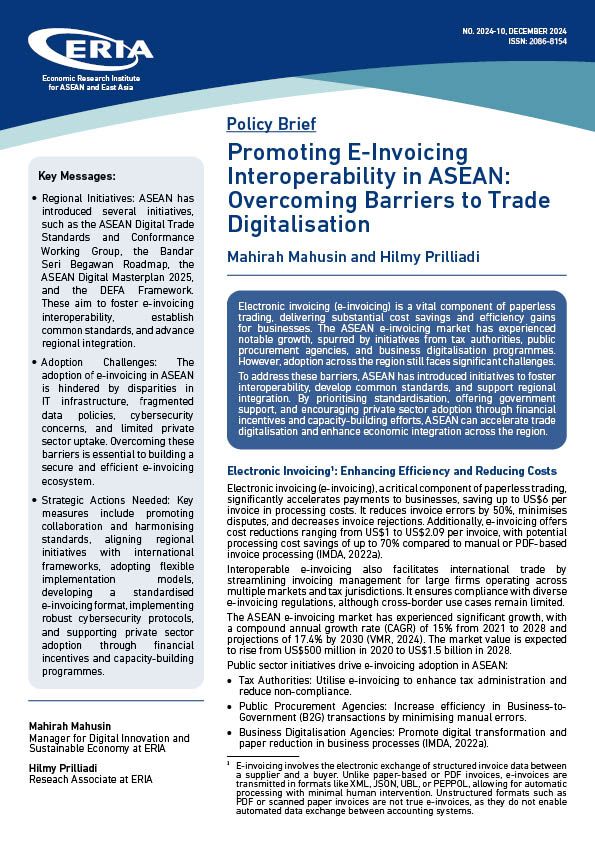COVID-19 Pandemic Best Policy Strategies: Balancing Health and Economy (Part 1)
Date:
19 May 2022Category:
NewsTopics:
COVID-19, HealthcareShare Article:
Print Article:
Jakarta, 19 May 2022: The Healthcare Unit and the Communications and Information Department of the Economic Research Institute for ASEAN and East Asia (ERIA) held a virtual regional conference on Pandemic Best Policy Strategies: Balancing Health and Economy on 19 May 2022. Six renowned experts from and a senior economist from ERIA were invited to speak and share best practices on smoothly handling and exiting the ongoing pandemic, and prepare for upcoming ones. A second webcast is scheduled for October.
For the past 2.5 years, the COVID-19 pandemic has transformed health systems and embattled economies across the globe. Within the ERIA Member States (EMS) alone, a host of measures have been introduced and implemented to balance each nation’s health and economy.
Opening the conference, Dr Songheang Ai, Director of the Southeast Asian Ministers of Education Organisation Regional Centre for Technical Education Development in Cambodia, expressed the need for regional unity through sharing of national approaches. He cited Cambodia’s efforts in handling the pandemic, which included vaccinations and emphasising social welfare.
Prof Tjandra Yoga Aditama, former Director of Communicable Diseases of the Southeast Asia Regional Office of the World Health Organization’ (WHO) in Indonesia, provided a history of recent pandemics, connecting previous global learning experiences to the current pandemic and noting the importance of continued vigilance and better preparation. Regarding preparation, he shared a WHO framework consisting of five approaches: vaccination, public health, and social measures with community involvement; clinical care and resilient health systems; research and development with equitable access; surveillance and laboratory activities; and COVID-19 response coordination. He mentioned Indonesia’s President Joko Widodo’s support to international strategies through the country’s 2022 G20 presidency, as well as the country’s strategy ‘to establish highest-level national coordination for pandemic preparedness and response’. He said Indonesia’s COVID-19 National Task Force has emphasised pandemic control with economic recovery through vaccination coverage, monitoring of the national health situation, and economic recovery. He concluded that beyond centralised emergency programmes, the new normal will require more attention to healthy lifestyles and preventive measures in Universal Health Coverage and Industry 5.0 through deeper community ownership.
In terms of COVID-19 strategies in the Philippines, Dr Maria Rosario Singh-Vergeire, of the Department of Health, presented health statistics showing that post-Delta wave and post-Omicron peak number of cases had fallen to triple digits daily whilst hospital bed utilisation rates fell as well to about 16%, with 11% of COVID-19 admissions being severe. Dr Vergeire shared the –integrated PDITR+ strategy, which represents a continuous prevent-detect-isolate-treat-reintegrate course and includes a national vaccination programme. She said PDITR+ adheres to the 4-door strategy against emerging and infectious diseases, the doors being point of origin, point of entry, point of care, and community. She noted that improvements during the pandemic have included a strong awareness campaign, an increase in testing and surveillance laboratories from 17 to 334, price caps for tests, a growing telemedicine industry, home care and community access infrastructure, coordinated information sharing, capacity building of sequencing facilities, and digital transformation (i.e., electronic data records, cloud analytics, disease models). She expressed the need for long-term investments and sustainable partnerships. Amongst the economic benefits of these efforts, she said, has been a decrease in overall national hospital expenditures as a result of decreased admissions.
Prof Prasit Watanapa, Dean of the Faculty of Medicine Siriraj Hospital at Mahidol University in Bangkok, Thailand, announced the establishment of the Centre of COVID-19 Situation Administration, a unit composed of representatives from public and private sectors set up to initiate policy that prioritises health, economy, and public and society as components of national security. Thus, he said, the centre first focused on the vulnerable people persuading the public to be vaccinated. Economically, it offered debt restructuring in general, gave a 50% food subsidy to the low-income population, and extended soft loans (a total of 250 billion baht) to support businesses as restrictions were gradually eased. He said that Thailand’s strategies have been effective primarily because of good cooperation amongst the government, business operators, and business recipients.
Dr Vijay Murali, COVID-19 Task Force and India’s Ministry of Health national awardee for pandemic management, disclosed that India, being a vaccine manufacturer and information technology developer, focused on vaccinations through the digital COVID Vaccination Intelligence Network programme and software application. The software contains five independent modules: orchestration, cold chain, citizen registration, vaccinators, and feedback with a real-time dashboard used by manufacturers, healthcare workers, and private citizens. He reported that throughout the pandemic, India has established hospital core COVID-19 control, integrated and coordinated available resources with hospital facilities and supply chains for medicines, educated the population on the social responsibility of maintaining health, and led smartly through teamwork. He said that a digitalised vaccination programme, proper screening, and triage have been effective in reducing healthcare facility burdens and that it is important to consider interdisciplinary approaches, alongside and new scientific collaborations.
Dr Norio Ohmagari, Head of the COVID-19 Task Force and Director of Disease Control and Prevention Center of the National Center for Global Health and Medicine in Tokyo, Japan, discussed the relationship between infection prevention control and the social system in Japan. He said the Japanese Government cannot restrict nor mandate but only request the citizenry to comply with recommendations. He remarked that the lockdowns are voluntary and that the government has focused on risk communication, particularly the 3 Cs to avoid: close contacts, crowded areas, and closed spaces. Thereafter, he said, compliance depends on individual choices. Although pandemic mental health has become a concern, he said that ‘society must become resilient’ whilst stimulating economic activity by minimising deaths and the number of people that require hospitalisation. He warned that if infection control measures are relaxed suddenly, many will be infected.
ERIA’s Senior Economist Dr Aladdin Rillo apprised the participants of the ASEAN economic situation, describing the pandemic as a global health and economic crisis that for the past 2 years has impacted the productive capacity of nations. He presented the ASEAN Comprehensive Recovery Framework ‘from containment to recovery’, which highlights the equal importance of health and economy through five components: enhancing health systems, strengthening human security, maximising the potential of an intra-ASEAN market, accelerating digitalisation, and advancing a sustainable and resilient future. He shared the results of a World Bank study which show, amongst others, that the international travel industry can benefit from adequate testing, and that safe vaccinations can directly enhance local economies. He concluded that ASEAN requires more discussion on how to manage trade-offs between economy and health and how to implement dynamic rather than restrictive policies to better serve the region.
During the question-and-answer portion, Dean Prasit was asked about the safety and efficacy of vaccines amongst the Thai population. He responded that all types of vaccines are safe although he noted some concerns about long-term effects of mRNA types. He said that all types of vaccines are available in Thailand.
Asked under what conditions the Philippines would consider locking down international travel again, Dr Vergeire answered that the Philippines and other nations have observed that locking down borders is not a sustainable strategy for health and the economy. Rather, she said, the Philippines will continue to use the 4-door strategy that has been effective so far. Still, she added, an alert system is in place that sets of an alarm when incoming travellers introduce infections in the country.
Asked on how nations can make businesses more resilient against future pandemics and if current innovations have proven fruitful and sustainable, Prof Tjandra commented that businesses have adapted to work from office, work from home, and work from anywhere, practices that can continue post-pandemic. He noted five points: architecture or the importance of good ventilation in buildings, touchscreens on doors, elevators, etc.; physical distancing in spaces such as lifts; video communications for intensive care unit visitors; cashless transactions; and Industry 4.0/5.0 digitalisation such as artificial intelligence, robotics, and so on.
Asked about the recent rise of Omicron cases in Japan, Dr Ohmagari, answered that, fortunately, the percentage of Omicron patients requiring admission has been quite small. Society, however, needs to accept or tolerate large numbers of cases whilst the healthcare system practices ‘to-the-point’ or targeted measures to minimise hospitalisation.
Dr Vijay answered in the negative when asked if India is accepting post-COVID-19 medical certificates in lieu of vaccination certificates for travel. He said that because immunity has not yet been established, vaccinations are provided even after infection.
Asked if there is a regional mechanism to achieve the ASEAN Comprehensive Recovery Framework, Dr Rillo mentioned two modalities: through the ASEAN Coordinating Committee on Public Health Emergencies, and through the strong comprehensive monitoring framework by the ASEAN Secretariat.
